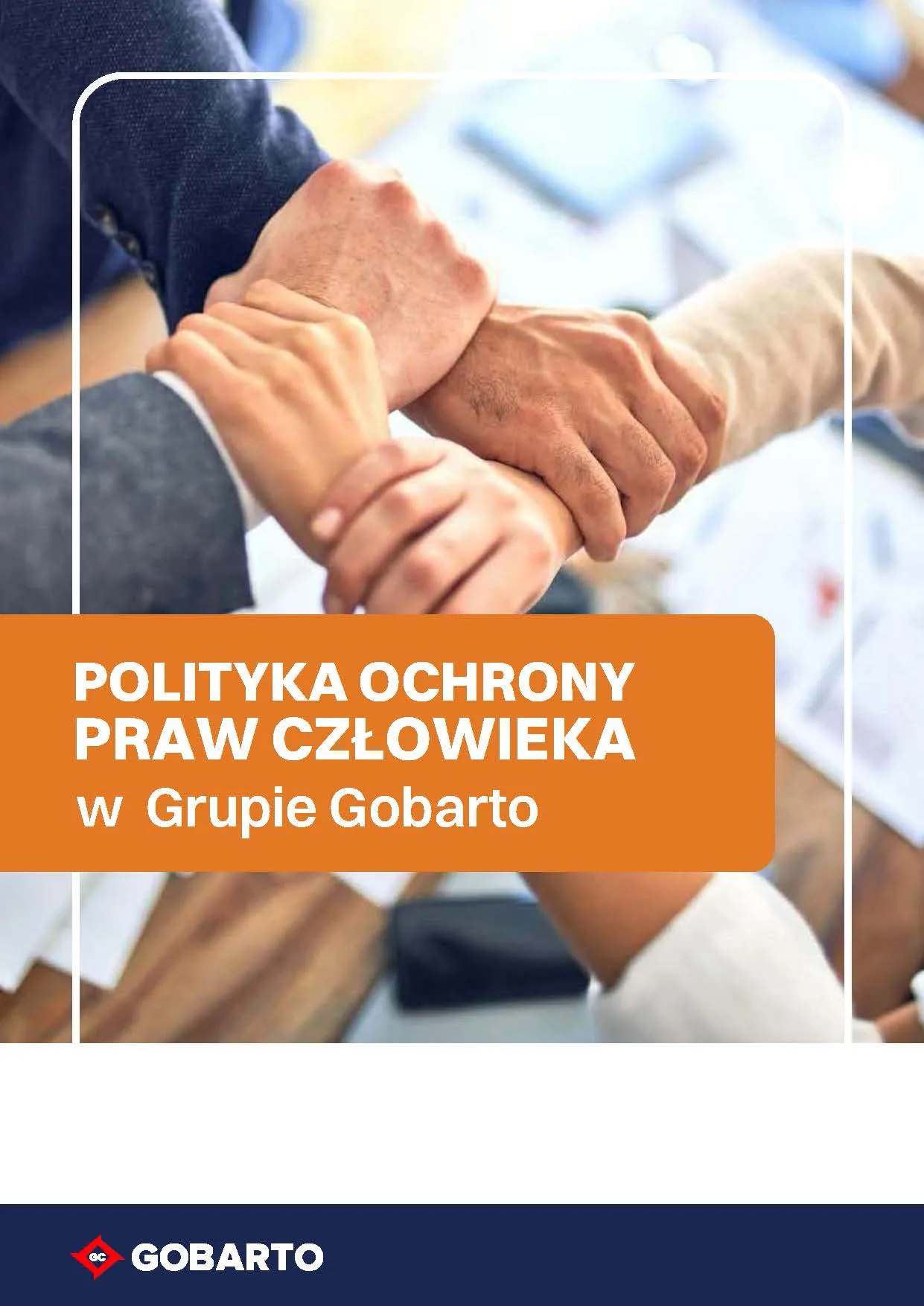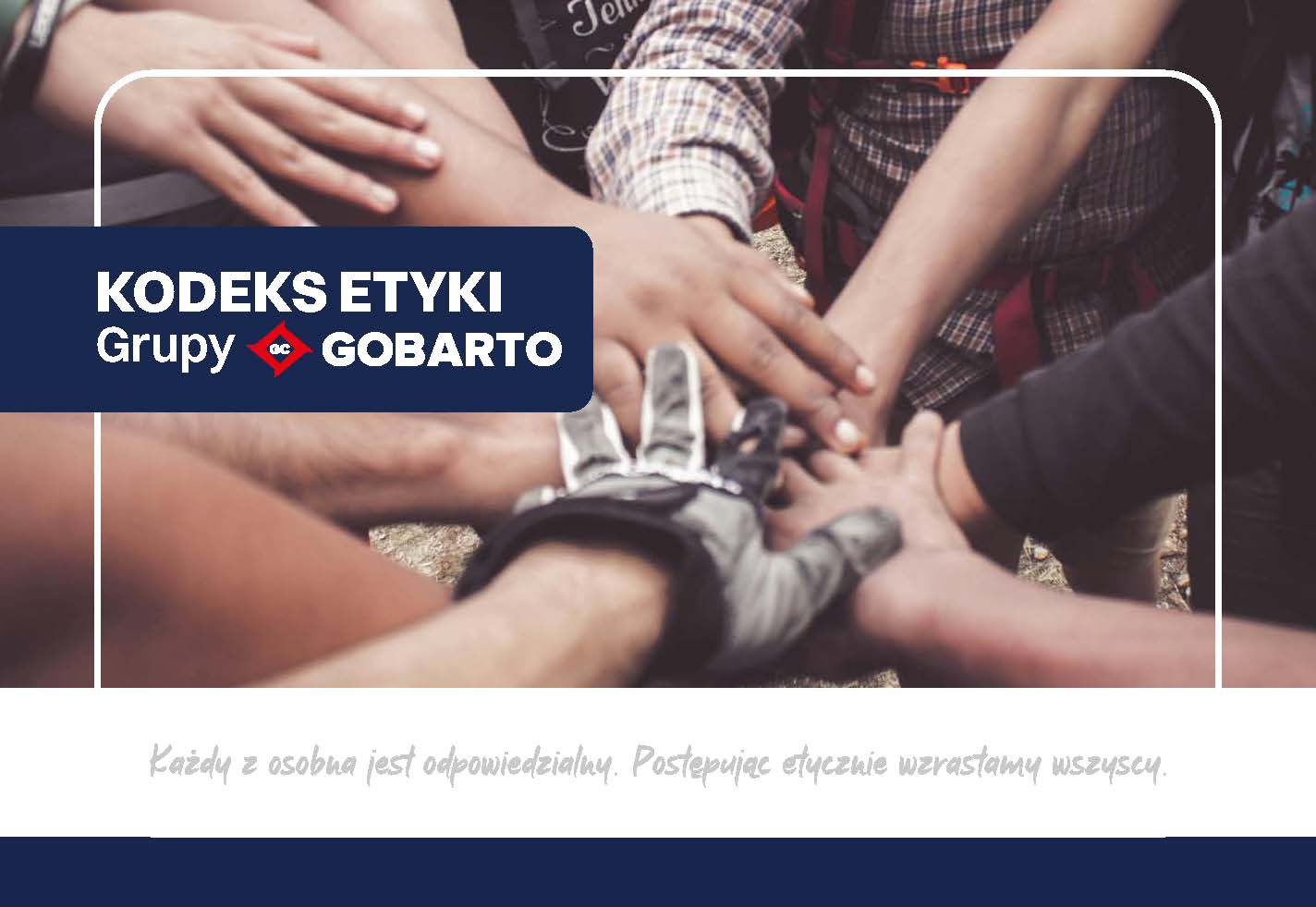On the Path to Sustainable Development
At the GOBARTO Group, we are committed to meeting today’s nutritional needs without depleting natural resources for future generations.
PRIORITIES OF THE GOBARTO GROUP
As leaders in the food production industry, we recognize the growing importance of efficient and sustainable farming and food processing operations – ones that minimize environmental impact and foster positive relationships with local communities and stakeholders. To this end, we have adopted an ESG strategy that defines our vision and long-term commitments for the sustainable growth of our company and its environmental impact from 2024 to 2030. Our efforts are focused on five key pillars that support our mission of sustainability.
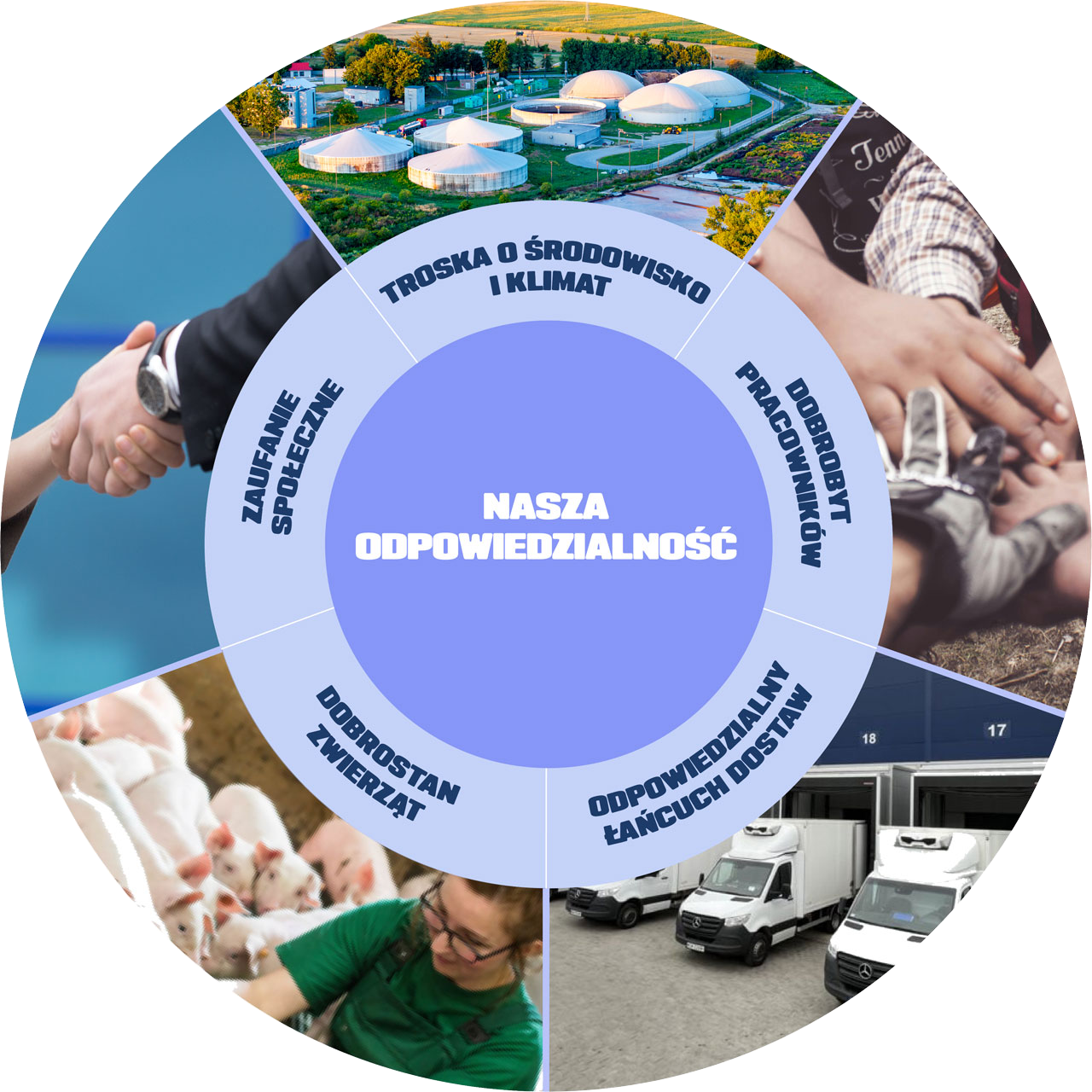
ENVIRONMENTAL & CLIMATE PROTECTION
Our Actions to Date
Innovative approach
Crop production
Green energy
Circular economy practices
Innovative approach
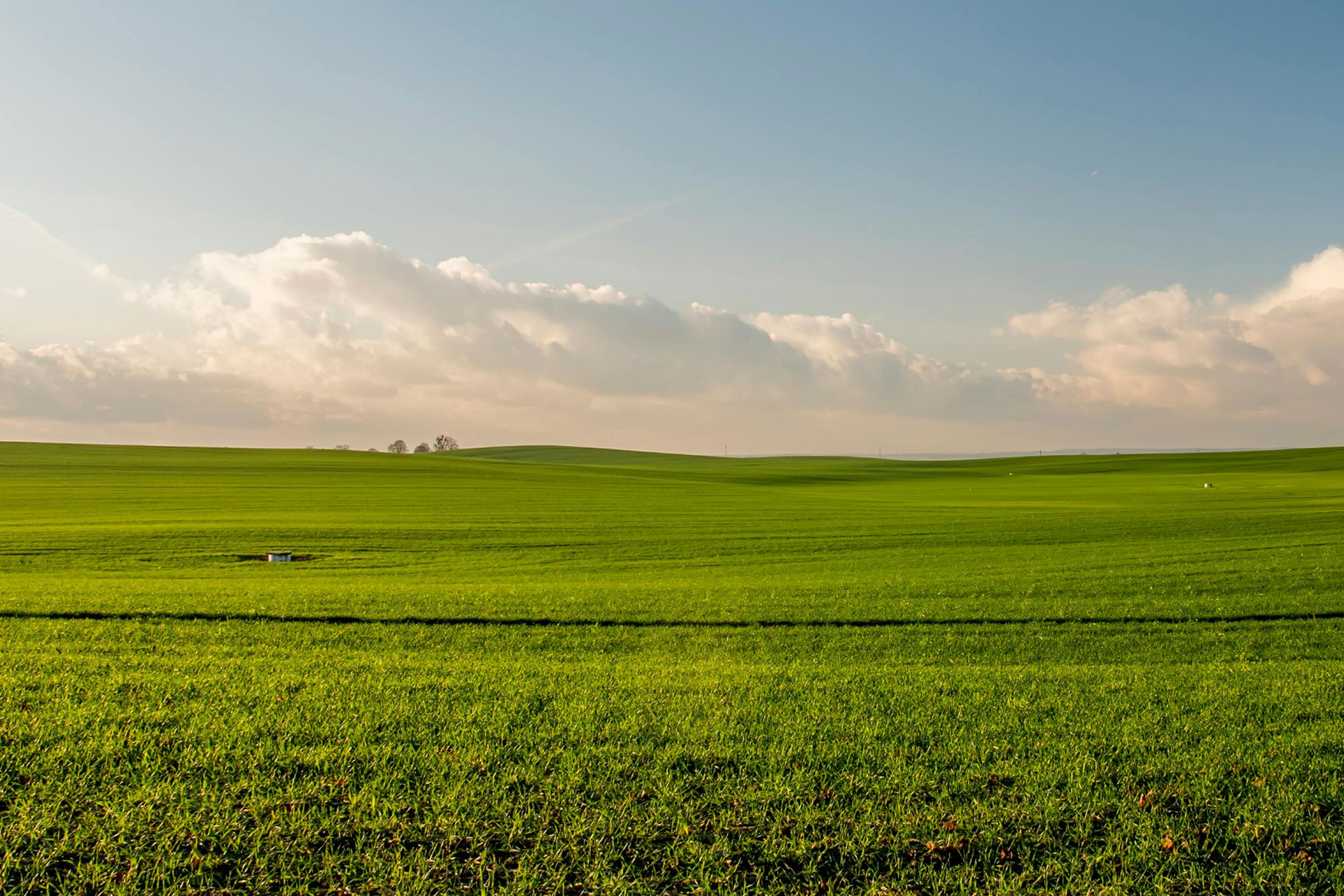
1. Innovative approach
We are committed to revitalizing Poland’s livestock farming sector, making it a driving force for both the food industry and decentralized energy production based on local renewable resources. Our development is based on close cooperation with local stakeholders, adhering to the highest environmental protection standards and legal regulations at local, national, and EU levels. By implementing optimal, cutting-edge technologies, we aim to reduce greenhouse gas emissions and increase the share of renewable energy within our operations and beyond.
Following the guidelines of the Science Based Targets initiative (SBTi), we strive to limit global temperature rise in line with the Paris Agreement. As part of this effort, we have established a clear emissions reduction pathway within our climate strategy.
We also actively involve our contractors to drive progress toward shared climate goals.
Crop production
We strive to ensure that every stage of our agricultural operations follows sustainable practices, preserving soil health and natural resources for future generations. Our plant production is based on controlled and minimal input usage, reducing environmental impact. We implement advanced technologies, such as satellite imaging, to optimize resource management. Natural and organic fertilizers, including post-fermentation residues, play a significant role in soil enrichment. These by-products have lower runoff potential and are free of pathogens and weed seeds. Additionally, organic fertilizers contain readily bioavailable minerals. For instance, nitrogen is primarily present in the ammonium (N-NH4) form, allowing for rapid plant absorption while minimizing nitrate leaching into groundwater and mitigating eutrophication. For over 20 years, we have used no-till farming methods, enhancing soil structure and sustainability. Our harvested crops provide the foundation for high-quality animal feed, as well as malt for leading breweries as well as rapeseed and sunflower oils.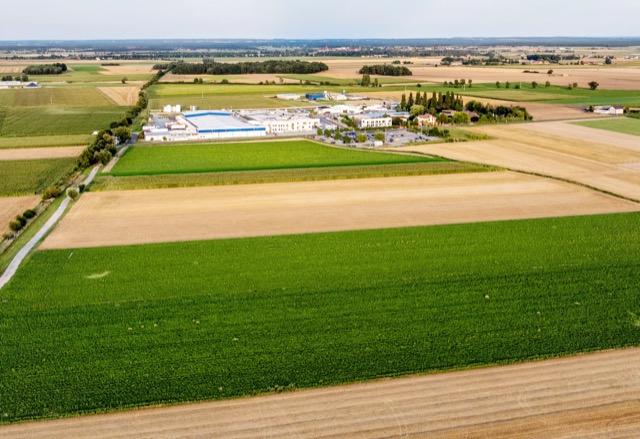
2. Crop production
Green energy
We believe responsible resource management is key to sustainable development. Our climate strategy prioritizes energy efficiency by locally integrating renewable energy sources with farming and processing facilities while maximizing high-efficiency cogeneration of electricity and heat. We harness solutions that increase our share of renewable energy, primarily using agricultural biogas derived from waste and animal by-products, as well as solar and geothermal energy. This allows us to generate both electricity and heat. Our goal is to generate significantly more renewable electricity than the total energy consumed across Gobarto Group operations.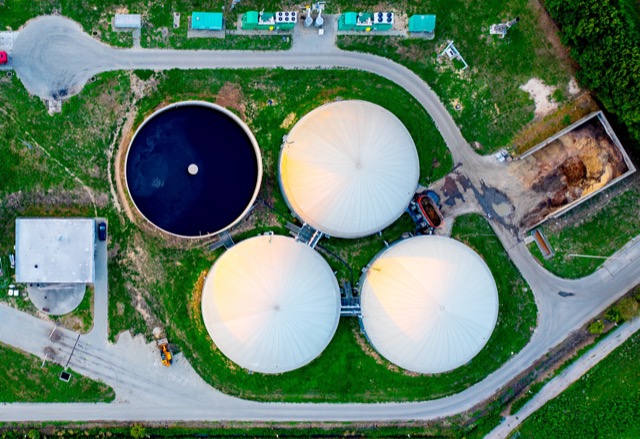
3. Green energy
Circular economy practices
Global energy trends are shifting towards technologies that incorporate storage capacity and numerous distributed, predominantly renewable energy sources located close to end users. Poland must not only increase investment in this sector but also actively engage its scientific and industrial potential to enhance efficiency, integrate these technologies with other industries, and improve environmental conditions. For the national economy, this presents an opportunity for technological advancement, industrial innovation, and reduced reliance on imported energy carriers. In rural areas, biogas plants are already playing a key role. They are strategically located in areas where agricultural production for energy purposes is viable, or near agricultural processing plants. These facilities create a natural synergy between local farming and energy generation. Biomass – particularly agricultural waste – is converted into biogas, generating both electricity and heat for local businesses. The energy produced is used for heating and industrial purposes, while the post-fermentation by-products serve as organic fertilizers for energy crop cultivation. This closed-loop system fosters a local circular economy: Gobarto SA is actively engaged in renewable energy investments, with a particular focus on projects that utilize local agricultural by-products and food processing waste. We take a holistic approach to sustainable farming, ensuring full nutritional support for livestock while responsibly managing by-products. Driving both the food industry and decentralized renewable energy, this approach aligns with an integrated path toward a sustainable circular economy.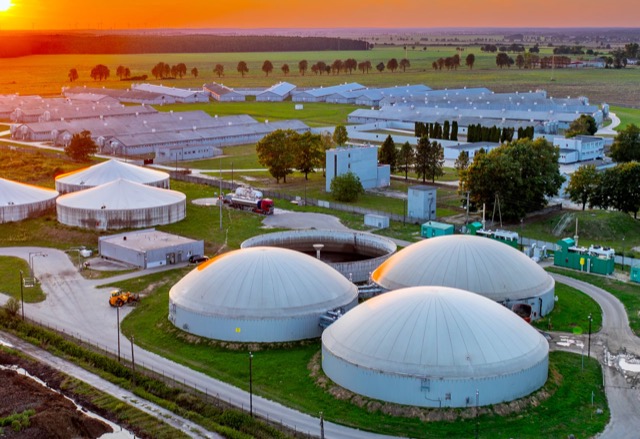
4. Circular economy practices and biogas plants
Our commitment to soil protection
Soil is a key resource we strive to protect and enhance through responsible agricultural practices. For over 20 years, we have practised no-till farming, improving soil structure and health.
Crop Rotation
A diverse planting strategy improves soil structure and mineral composition.
Precision Fertilization
Satellite technology optimizes fertilizer application, minimizing excess use and environmental impact.
Reduced Tillage
Minimal soil disturbance prevents degradation and lowers nitrogen oxide emissions.
Catch Crop Cultivation
Sowing catch crops increases the soil’s water retention capacity and protects it from erosion.
Extensive Grassland Management
We treat grasslands as a natural filter and a way to enrich the soil without the need for intensive cultivation.
Legume Cultivation
Legume crops naturally enrich the soil with nitrogen, improving its quality.
Cele strategiczne
Obniżenie wskaźnika intensywności emisji (zakres 1 i 2 / przychód) o 13%
Dane za 2023
g CO2/zł
Rok bazowy 2022: 16,23 g CO2/zł
Ilość energii elektrycznej wyprodukowanej z OZE większa niż łączne zapotrzebowanie na energię elektryczną w perspektywie 2030 r.
Dane za 2023
Rok bazowy 2021: 49%
Łączna moc elektryczna zainstalowana w OZE i kogeneracji wysokosprawnej ponad 6,6 MW
Dane za 2023
MW
Rok bazowy 2021: 2,999 MW
Employee well-being
We create stable and secure workplaces
We guarantee fair wages, offer ample opportunities for growth, and place a strong emphasis on employee satisfaction and engagement. We invest in training programs and health & safety initiatives, fostering a work environment where employees feel valued and motivated.
A responsible supply chain
We pursue sustainability at every stage of the supply chain
Our Supplier Code of Conduct and Farmer Code of Conduct set standards for human rights, fair labour conditions, animal welfare, and environmental protection. These guidelines apply to all our suppliers, from raw material sourcing to finished products.
Animal welfare
Animal welfare is a key priority in our operations
Our animal welfare standards comply with legal requirements and, in some areas – such as living space per animal – exceed them. We view responsible animal care not just as a business necessity, but as a fundamental ethical value.
Increased Living Space
Our pigs are given more space than required by law, and we ensure our partner farmers uphold the same high standards.
Individualized Nutrition
We ensure high-quality animal nutrition by using feeding systems tailored to their needs. Half of our sows already benefit from an individualized, computer-controlled feeding system. Our goal is to extend this system to at least 70% of sows by 2030, in line with our ESG strategy. All our feed, including our own formulations, is balanced and sourced exclusively from Poland to support the healthy growth of our animals.
Compassionate Care
We want our employees to treat animals with empathy and understanding, which is why we provide regular training on proper handling practices. Our animals are under the constant supervision of veterinarians and experienced livestock specialists who monitor their health and well-being. We use balanced feeds tailored to the animals’ age and weight. Preventive measures are in place to minimize the need for medication.
Advanced Biosecurity
Biological safety is one of our top priorities. We are among the few in Poland to operate a steam chamber for thermal disinfection of livestock transport equipment, reaching 70°C to eliminate potential risks. We strictly adhere to biosecurity protocols, and our employees undergo regular training to ensure safety at every stage of production.
Social Trust
As a Polish company with family traditions, we are committed to building lasting relationships with local communities
We foster trust by supporting farmers and actively engaging in community life.
Gobarto 500 Programme
As a Polish company with family traditions, we continuously expand our production capacity, enhance distribution efficiency, and introduce our products to new international markets. Through the Gobarto 500 Programme, we support Polish farmers by collaborating with local stakeholders and ensuring the highest environmental protection standards and regulatory compliance.
Gobarto Foundation
Our foundation is dedicated to supporting local communities and regional initiatives. Through its activities, we strive to improve the quality of life in the areas where we operate, with a special focus on helping children and youth facing various challenges. We are also committed to education, environmental protection, and supporting local initiatives. Our relationships with local communities are built on trust, mutual respect, and a shared commitment to sustainable development.
